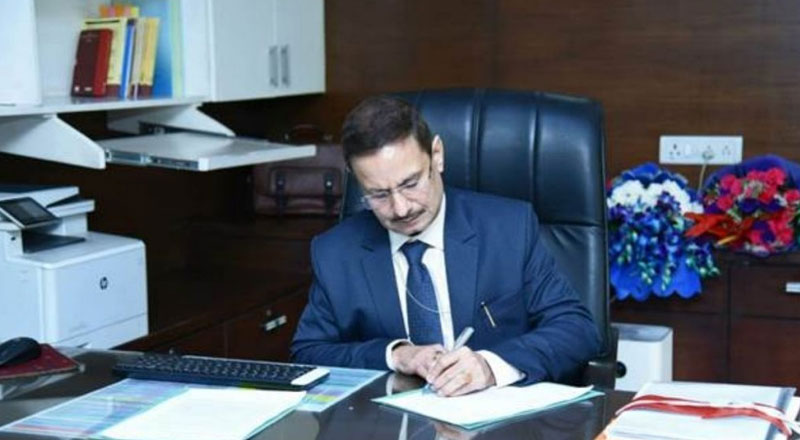Started back in 2009, Fiinovation is a research-based CSR consultancy that helps corporations channelize the resources efficiently for the upliftment of community on societal, economic and ecological aspects in accordance to their company CSR charter. Dr.Soumitro Chakraborty, Chief Executive Officer, Fiinovation tells SPOI of how he looks at CSR & sustainability in the country and what he feels corporates should do for making sustainability as a best practice –
Could you tell us more about your organization?
With a vision to ensure development is not only sustainable and easy to access but also simplistic and scalable. We are determinedly working since 2009 in the social welfare sector with different CSR initiatives across India on Health, environment, livelihood and education projects.
After the Companies Act being mandated, Corporate Social Responsibility (CSR) has transformed from an auxiliary concept to a strategic practice in business operations across the globe. Consequently, our major focus now is to identify real societal needs and help our partners design focused CSR policies. Formulating a focused policy and guideline is a key element for a business towards a holistic and inclusive growth.
Furthermore, our Initiative Design and Management service is intended to design the requisite programme, plan for the implementation and moreover assist to shortlist the implementing partner for the programme through its in-house “Proposal Research Laboratory”.
More importantly, we facilitate planning of the programme, its implementation, monitoring and evaluation, impact assessment and finally, submission of the respective reports. Our monitoring and evaluation team recognizes the effectiveness and quality of an initiative, thereby ensures accountability towards the stakeholders. The team aligns the methods of the project basis the meticulous findings and suggestions. Need Assessment, Baseline Study, Mid-term & End-term Evaluation Perception Study and Impact Assessment are some of our Monitoring and evaluation processes.
Impact Assessment (IA) is an imperative component of a CSR project management, which enables the programme ideators to analyze the relevant economic, social and environmental impact of a project and precisely focuses on learning and analysis. Our approach of embedding common indicators of impact assessment and economic valuation has set us apart in the sector.
At Fiinovation, we realize the right ground-level approach to address these challenges with cost-effectiveness and time-orientation. Certainly, there is immense scope and lot of power with corporates to bring about quantitative and qualitative social transformation.
In the Indian context, do you see sustainability as an important agenda for the businesses running here?
The Amendment in the Companies Act 2013 has given a new thrust to Corporate social responsibility as a business strategy. Though it hasn’t reached the expected level, it is seen as a potential trigger. Several corporates are now making their CSR activities strategic and are aligned as per the societal needs. Sustainability is a comprehensive approach for a business that aims to create and maximize long-term economic goals by keeping a balance of social and environmental aspects in a long run. While focusing on community needs, companies are taking up activities which are sustainable, and are continuously undertaking measures for impact measurement.
CSR and SUSTAINABILITY are inseparable. Convergence of CSR and sustainability form the core of The Companies Act, 2013 (Section 135). The concept focuses both on shareholders and stakeholders through the social, environmental and economic objectives of a business.
I would say, transforming a business completely sustainable may not be feasible for many. However, a mixture of CSR and sustainability can definitely deliver a measurable impact. Conceivably, there is a need for more strategic, systematic and structured approach for an integrated development that can be addressed through an amalgamation of sustainable and socially responsible practices by businesses.
Could you also share with our readers any of the CSR projects that you are involved with?
One of my close-to-heart CSR projects in India is a project funded by India’s largest multinational flexible packaging materials and solution company Uflex Limited that is working for natural resource conservation and optimization initiatives in Bhind District of Madhya Pradesh, and Gautam Buddha Nagar in Uttar Pradesh.
With a partnership with our organisation, they successfully rolled out rainwater harvesting and plantation interventions through the implementation agency AROH Foundation. Currently, along with UP, we are working in Malanpur in Bhind District of Madhya Pradesh.
Notably, Uflex manufactures PET Chips (raw material for the polyester film) at its plant in Malanpur with a production capacity of 72,000 Tonnes Per Annum. The initiative aims to build the capacity of the community to conserve and optimize the natural resource base. This would particularly include construction of carefully planned ex-situ rainwater harvesting structures for arresting rainwater and charging the aquifers; organic and inorganic mulching to protect soil cover and focused plantation drives in the villages.The project was recently acknowledged by ABP News CSR Leadership Award Jury as the ‘Best Environment-Friendly Project’.
Around 100 farmers and their families will stand to benefit from the intervention over a period of next three years. The initiative underscores active participation of all stakeholders like village panchayat, farmers, local administration, social workers, schools, men, and women.
What are the loopholes that hinder the growth of CSR in the country according to you? How far is govt intervention important in it?
As it is not very common for everyone to give back to the society, at times it’s due to ignorance, sometimes unwillingness or most of the times less clarity. With the 2013 CSR act, the government hit the right chords and has given an extra edge to the corporates.
According to a report, Indian companies spent Rs13, 828 crore on CSR projects in 2015-16, which is Rs4263 crore more than the previous year. Yet, the CSR mandate has a lot of loopholes as it doesn’t focus on Social Audits as of now. I hope that perception studies and audits will be taken into consideration to ensure a qualitative approach rather than just quantitative. At times, some firms are more focused on CSR activities that also lead to increasing firm profits, such as inculcating goodwill and good public relations.
But the story has to begin with a socially conscious approach. To start with, there is a need to identify real- needs at the ground through effective baseline study, besides, a cost-effective implementation plan on social intervention. Once there is a feasible blueprint, the project needs to be implemented effectively by an implementation wing- a civic body with the required experience, geography and expertise.
In my opinion, it’s not feasible for businesses to manage the entire CSR portfolio on their own owing to practical challenges; hence, they require right consultants and implementation partners to ensure the 2% investment on an impactful project. Fiinovation tries to bridge the gap, solve the real-time challenges and make each project impactful and sustainable.
According to you how can corporates help in creating meaningful CSR?
Currently, the biggest challenge for companies is to develop an approach that can truly deliver on the mandate— as of yet, only a few have found their way. Nevertheless, some innovative companies like Tata execute tremendous CSR campaigns. It only demands real intentions and social consciousness to deliver worthy social interventions.
Corporates must focus on right CSR project design, Programme plans, rigorous Monitoring and evaluation, and efficient implementation partner to achieve the maximum out of their CSR spends.
What will be your roadmap in terms of creating a positive impact on both society and environment?
Going forward, Fiinovation wants to focus on more sustainable and impactful social programmes and support more organizations in implementing the desired activities on the ground. MSMEs are our key focus. We will exhaustively focus more on the research, and strengthen our research and programmes team across India.
Currently, we are working on multiple environment-based projects. One of them being, an environment and livelihood project with PI industries ltd.





